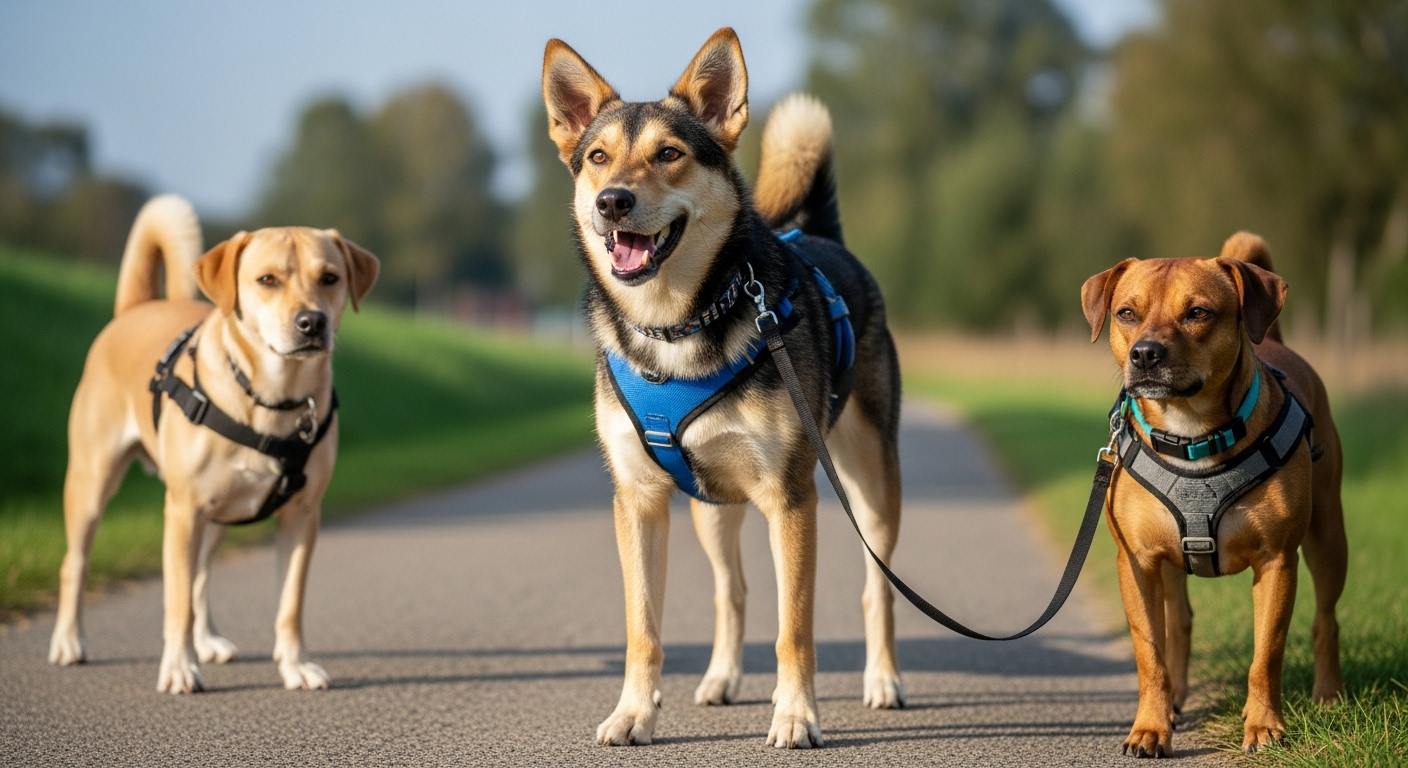We’ve all been there — you’re enjoying a lovely walk with your dog, the sun is shining, and then… chaos. Your pup spots another dog, and suddenly, you’re in the middle of an impromptu bark-fest. Not exactly the peaceful stroll you had in mind.
But imagine this instead: a calm, steady pace. Your dog notices others passing by but stays composed, maybe offering a polite sniff or a gentle tail wag. No barking, no drama — just a pleasant walk for both of you.
Some breeds are naturally more relaxed and less reactive toward other dogs. It’s not that they don’t notice their canine counterparts; they simply prefer to mind their own business. This makes them a dream for city dwellers, families, or anyone who loves long, peaceful walks without the soundtrack of constant barking.
In this list, you’ll meet the quietest dog breeds that excel at quiet confidence. They keep the peace, avoid unnecessary noise, and turn your daily walks into the serene experience you always hoped for. If you’ve been craving harmony on the leash, you’re about to find your perfect match.
Dog Breeds That Rarely Bark At Other Dogs On Walks
1. Borzoi
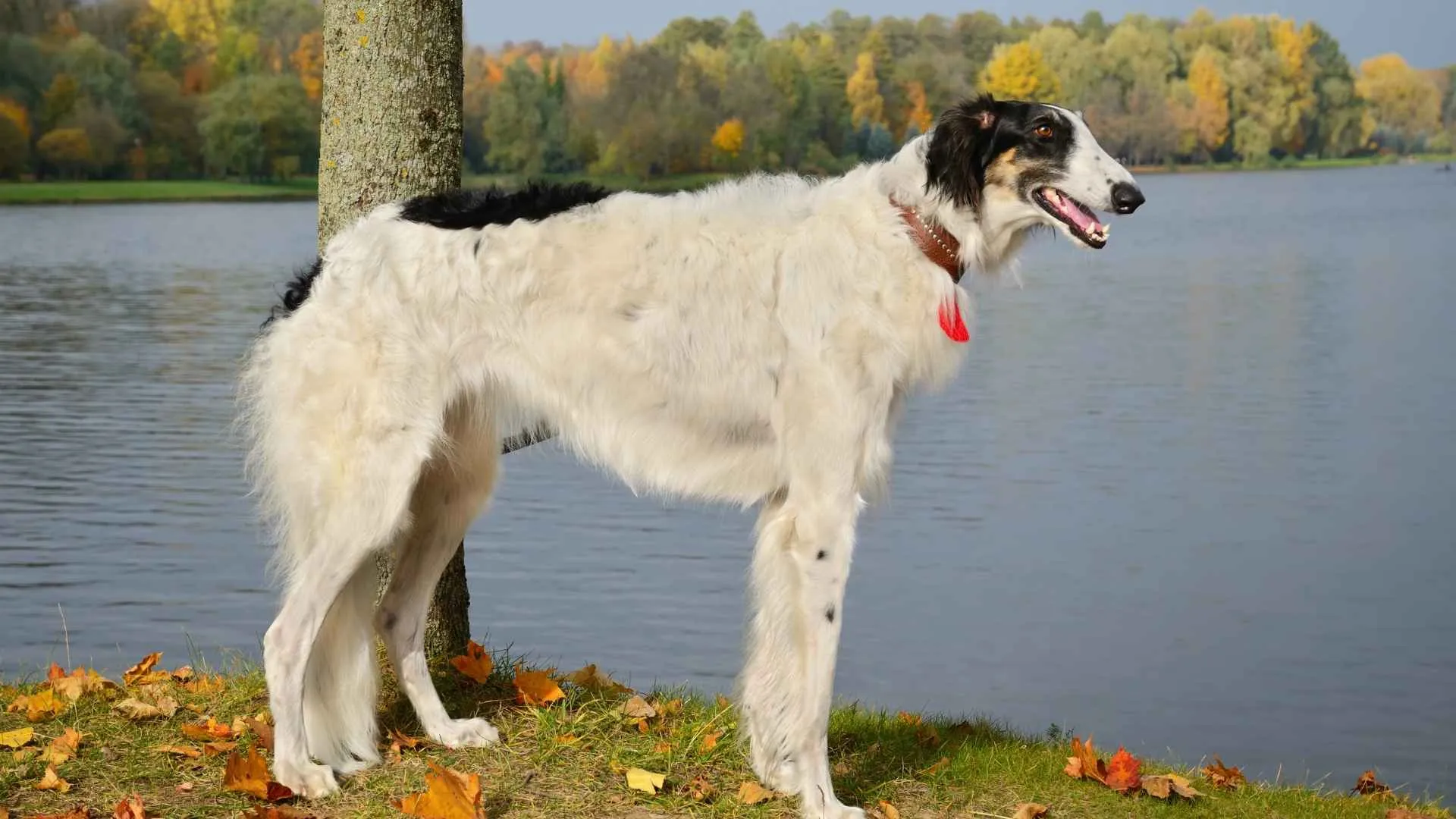
Imagine strolling down the street with a dog who’s part aristocrat, part sleek athlete—and part ninja when it comes to barking.
Meet the Borzoi, a breed that redefines “quiet confidence.” These elegant, long-legged wonders glide along like royalty on a casual promenade, not a peep in sight when other dogs are busy yapping their heads off.
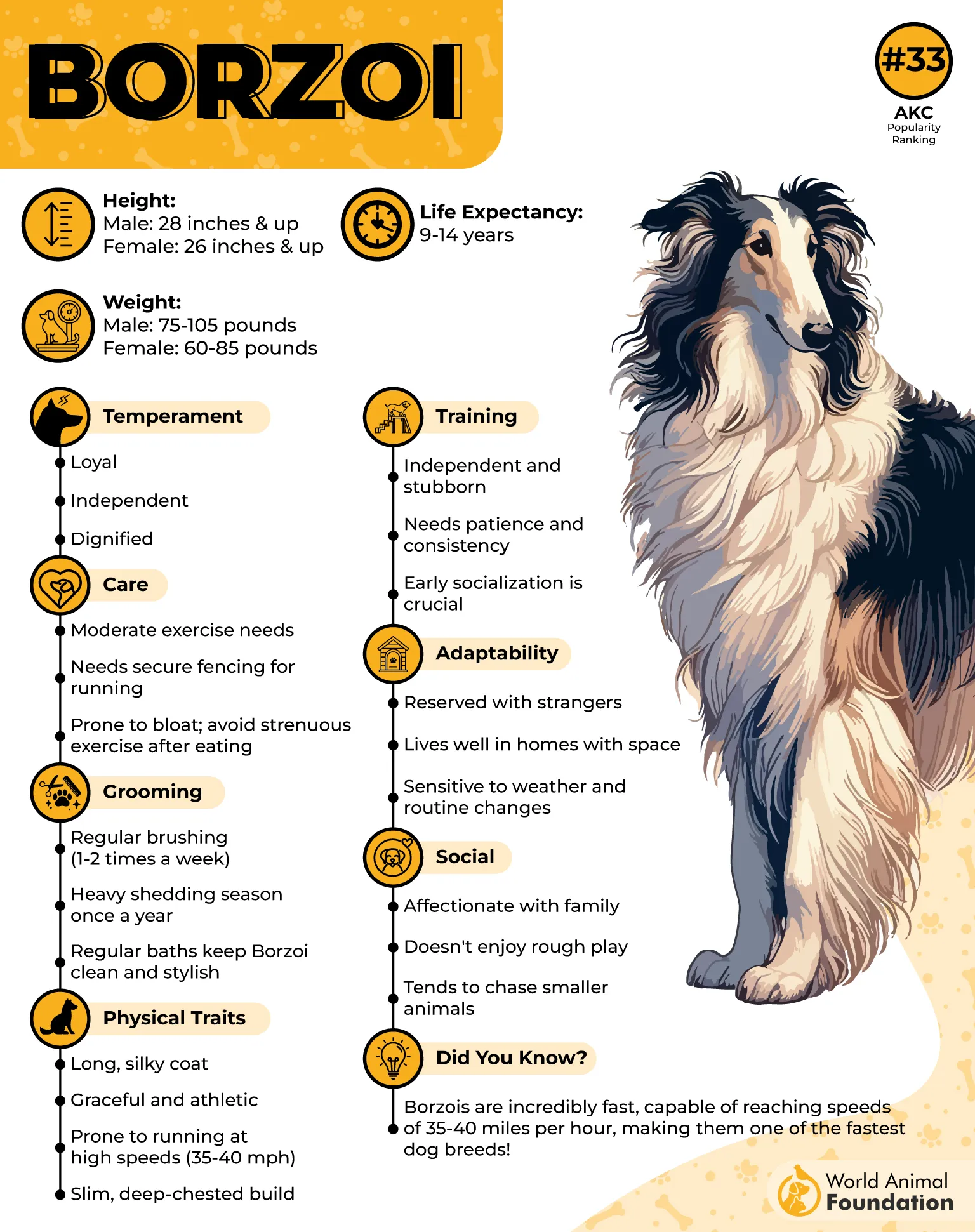
They call them “quiet and catlike,” which is pretty spot-on. Picture a dog that moves with the grace of a ballerina but can sprint like a racecar—yes, Borzois can hit 40 miles per hour. That’s faster than your average soccer mom on the freeway (sorry, Karen). Yet, despite this need for speed, they’d rather give a polite nod to their canine neighbors than a barking marathon.
Why? Because Borzois have a chill vibe—more “I’m here to observe and look fabulous” than “Hey! Look at me! Bark, bark!” It’s like they’re the James Bonds of dogs: cool, composed, and effortlessly dignified, sizing up the scene with a quiet smirk.
So next time you spot a Borzoi strutting past, remember: behind that serene, aristocratic face is a lightning-fast, bark-averse companion who’s got the perfect blend of grace and “shhh.” And honestly, isn’t that the dream?
2. French Bulldog
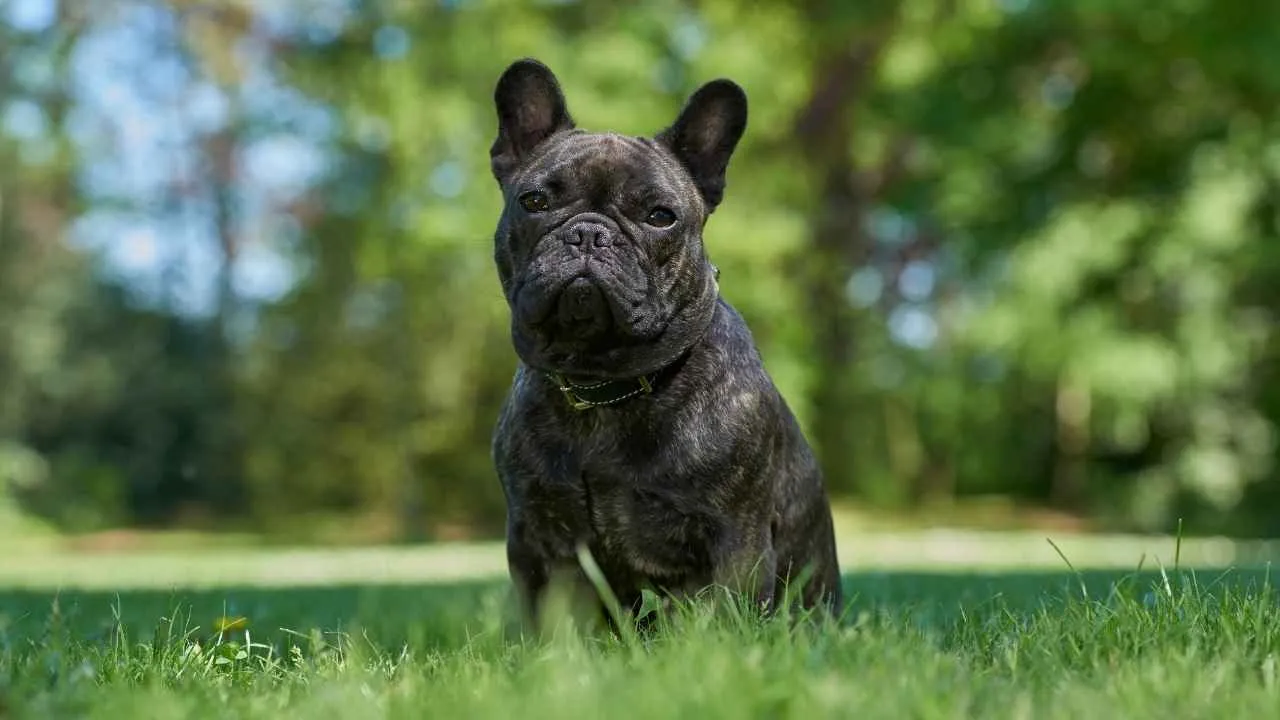
If the dog world had a stand-up comedy club, French Bulldogs would be headlining every night. These little charmers are like the class clowns of the canine universe—full of personality, a bit cheeky, and absolutely lovable.
But here’s the twist: despite their bold, “I’m the boss” attitude, Frenchies are surprisingly chill when it comes to barking at other dogs on walks.
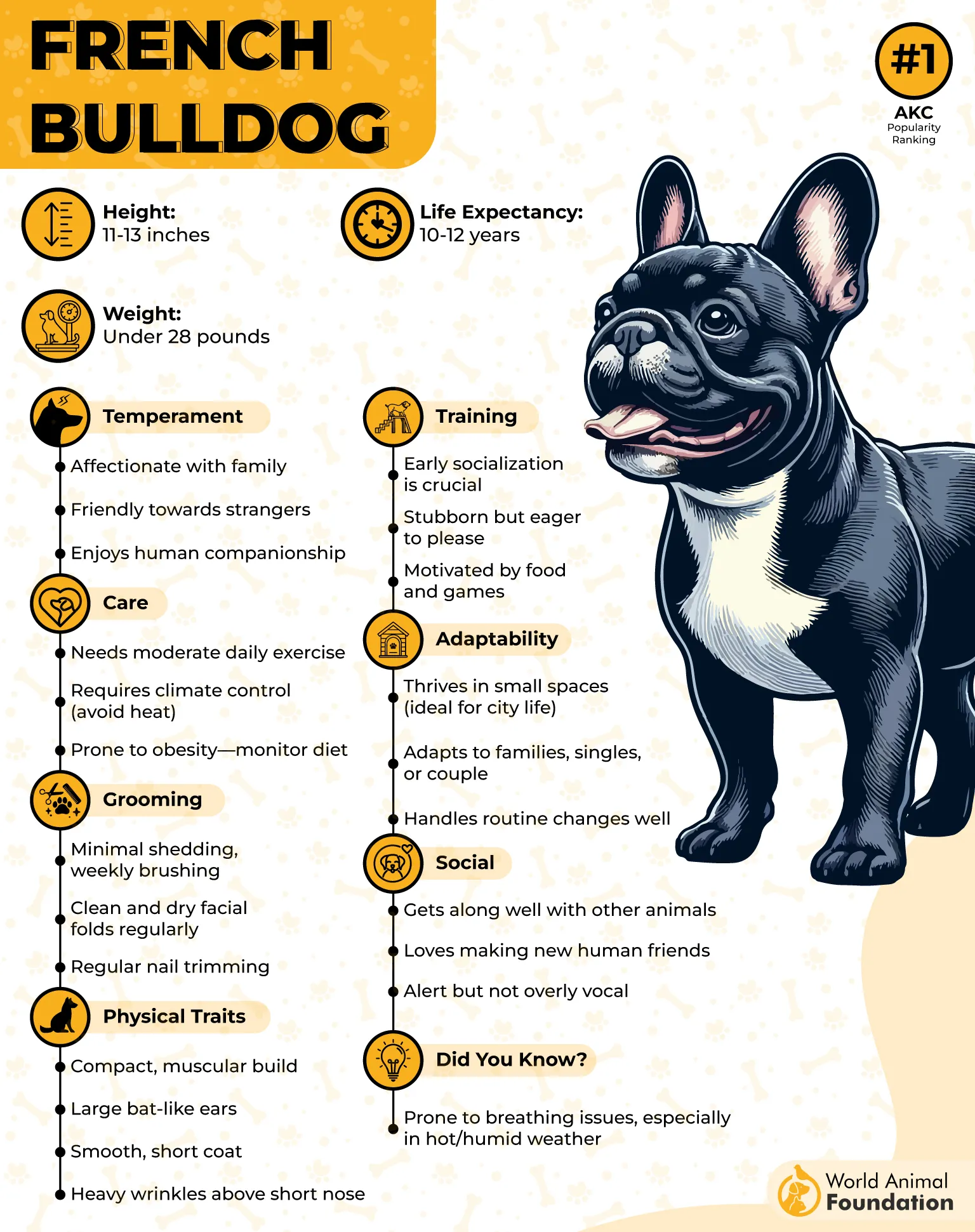
Sure, they’ve got those big bat ears that practically scream, “I’m listening!” and a face that says, “You want some drama? Bring it on.” But when it comes to other dogs, French Bulldogs tend to keep their cool.
Why? Because Frenchies are masters of making friends, not frenemies. They’d rather throw a goofy sideways glance or a playful snort than launch into a barking frenzy.
Think of them as the laid-back sitcom star who’s seen it all and isn’t easily ruffled. Walking a French Bulldog is like having your own little hype man who’s more interested in snacking on a dropped crumb than starting a barking battle royale. They’ll grunt, snuffle, and wiggle their way through the neighborhood, spreading smiles without the noise pollution.
And let’s be honest, their adorable snorts and occasional “talking” sounds are way more charming than a bark-off. So if you want a dog who’s basically a lovable goofball with the diplomacy of a tiny, wrinkly ambassador, French Bulldogs are your go-to.
3. Japanese Chin
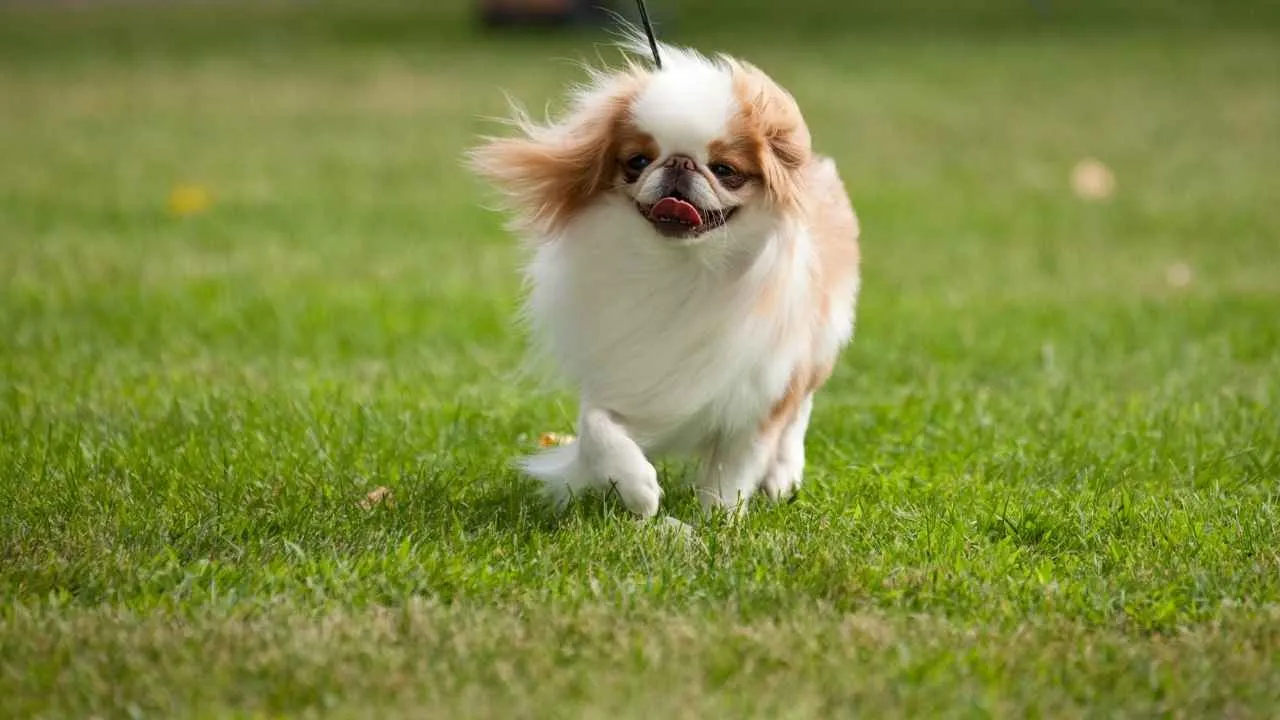
If cats and dogs had a royal summit, the Japanese Chin would be the ambassador—proud, poised, and just a little bit mysterious.
The American Kennel Club (AKC) calls them a “distinctly feline” breed, and honestly, that’s no exaggeration. These little lapdogs move with the grace of a ballerina and the attitude of a tiny monarch who’s accustomed to being pampered.
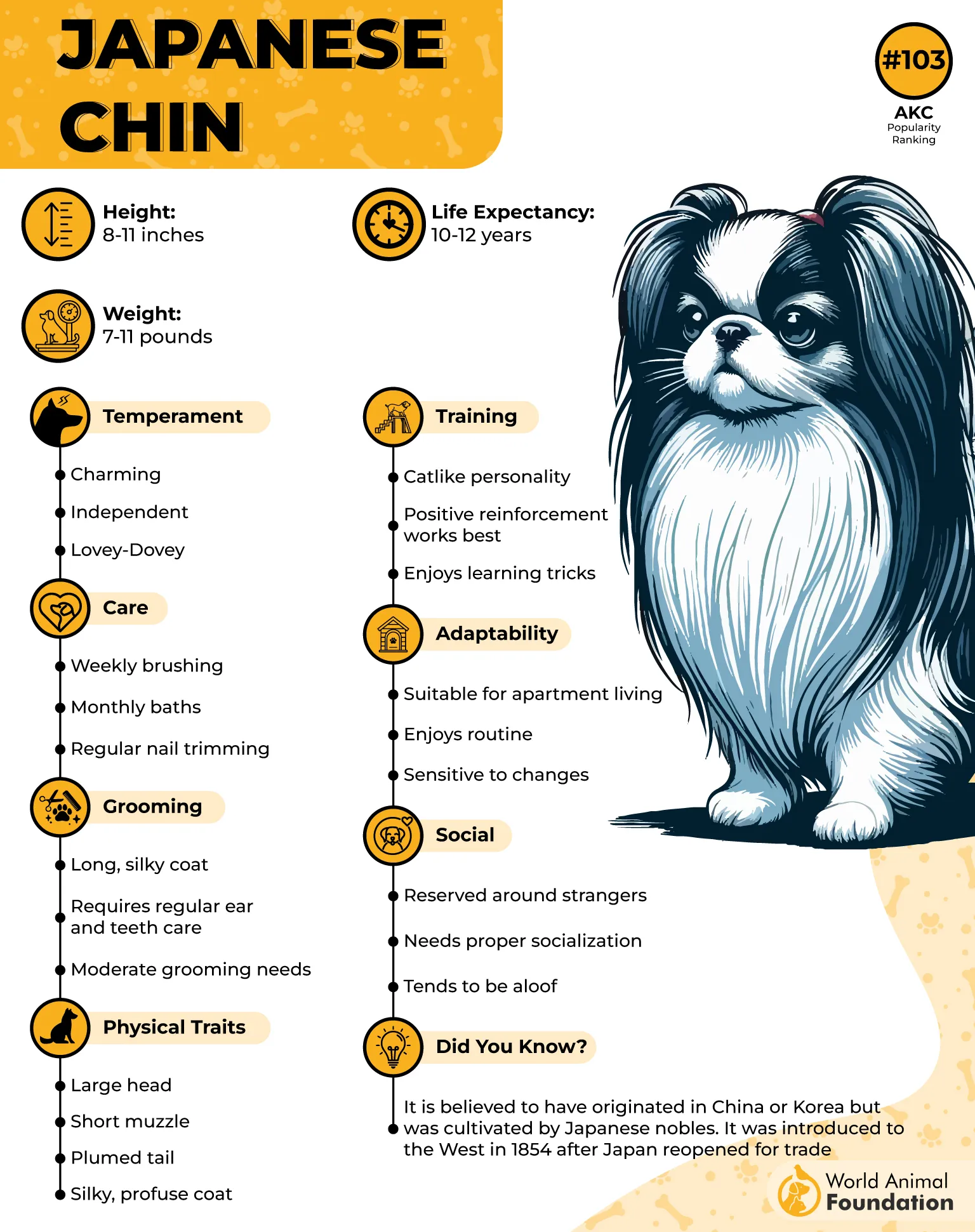
Japanese Chins are the picture of elegance, fastidious about their surroundings like a true noble. They’re not your typical “bark-at-everything-that-moves” kind of dog. No, they’re generally quiet, judging the neighbors in the most refined way possible, maybe with a little head tilt and a slow blink—classic cat move.
With their unmistakably Eastern look and bearing, these dogs are tiny Zen masters of calm. Walk them, and you won’t hear a bark unless it’s absolutely necessary (like alerting you to an emergency snack drop).
They’re more about subtle glances and delicate paws than raucous barking sessions. It’s like having a dignified, whisker-twirling companion who’s just as happy napping in sunbeams as they are accompanying you for a quiet stroll.
4. Newfoundland
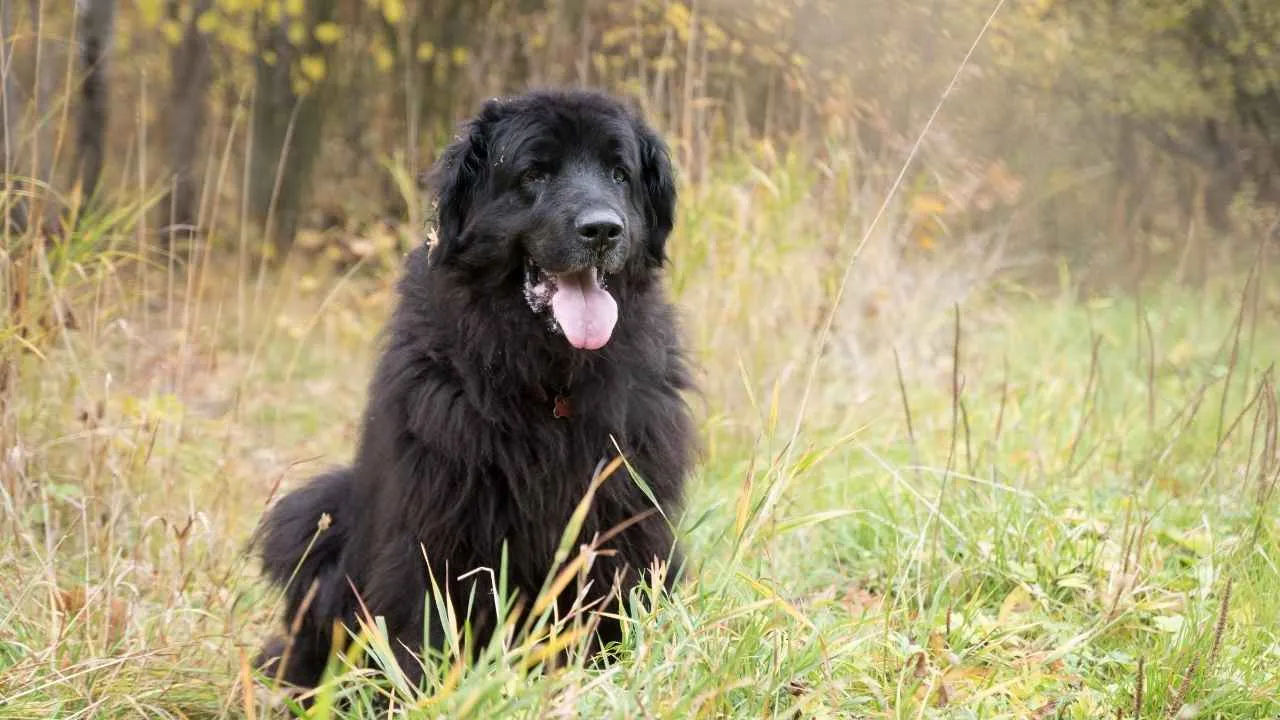
Now, meet the Newfoundland—think of them as the gentle, furry teddy bears of the dog kingdom. These massive, fluffy giants could probably cause a neighborhood power outage just by walking by, but here’s the thing: they’re the softest souls you’ll ever meet, especially when it comes to barking.
WebMD says that despite their large size, they are gentle and friendly, earning the nickname “nanny dogs” for their exceptional patience and kindness with children.
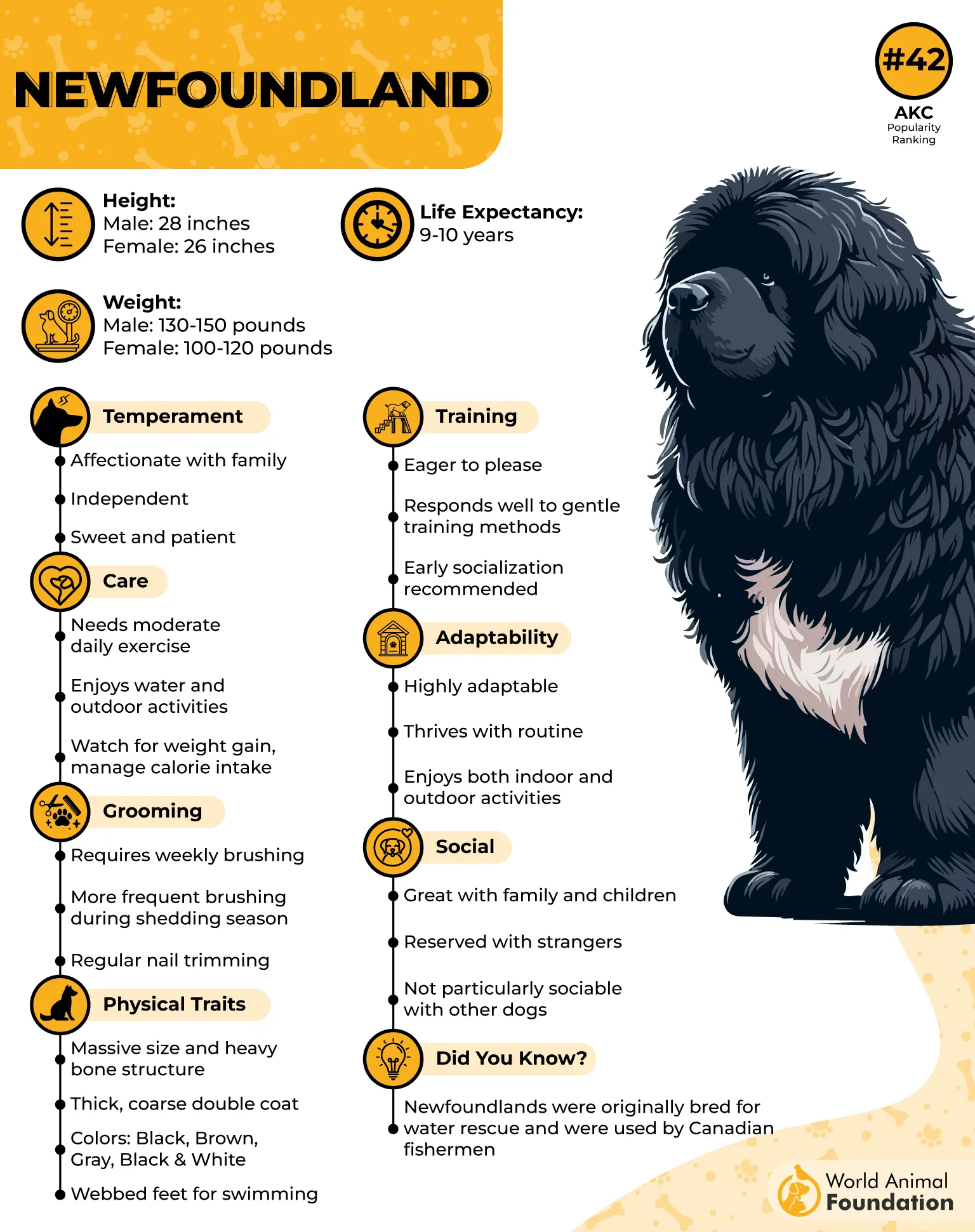
Newfoundlands are like that calm, wise friend who never gets riled up. They’re patient, loving, and famously quiet during walks, preferring to lumber along with a mellow “let’s just enjoy this” vibe. When other dogs are sounding off, your Newfoundland is probably just sighing, thinking, “Can we keep it down? I’m trying to look majestic here.”
These dogs have a heart as big as their paws. Their quiet demeanor isn’t from lack of personality—oh no—they’ve got plenty of charm, just expressed with a low-key, gentle voice. They’d much rather greet other dogs with a slow wag or a goofy smile than a bark-fest.
Walking a Newfoundland is like having a giant, plush guardian angel by your side, keeping the peace and the neighborhood noise levels down.
5. Akita
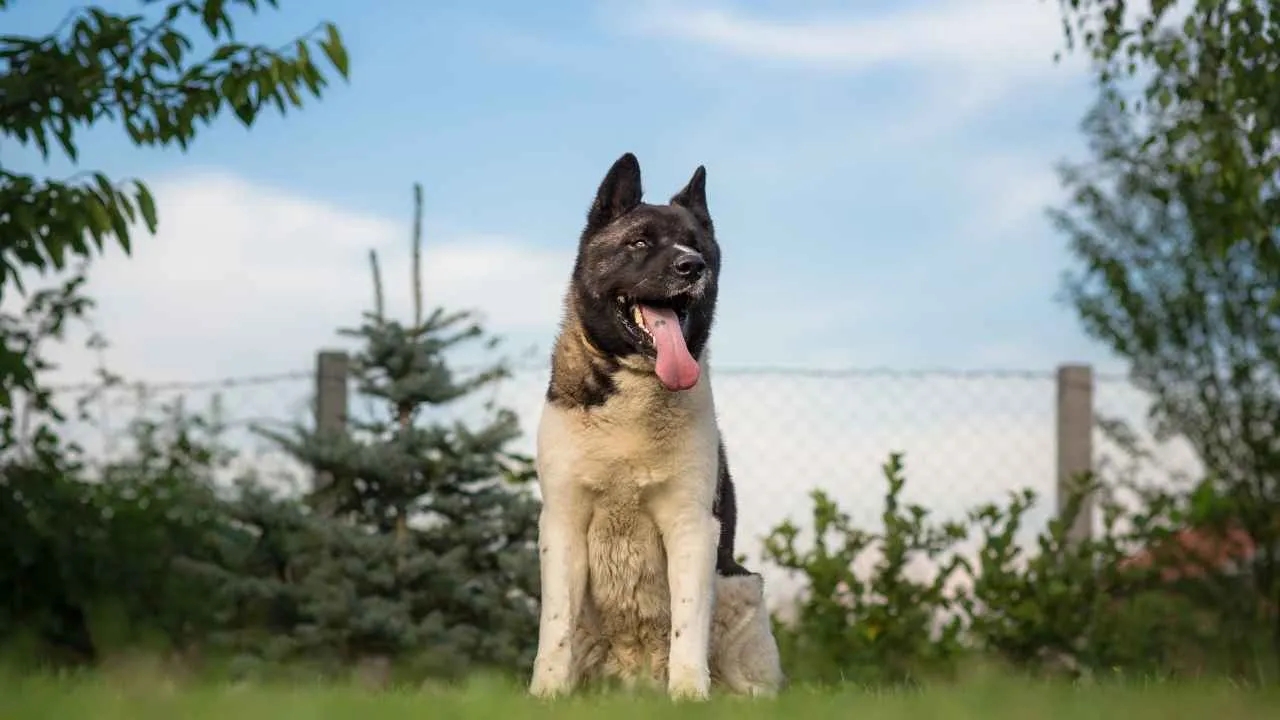
Akitas are like the stern but loving bodyguards of the dog world. They don’t bark just to say hello or start a neighborhood debate—they save their vocal cords for serious business.
In Japan, Akitas are considered a national monument and are often linked to good health. PetMD noted it’s traditional to give families a statue of an Akita when a new baby is born or when a loved one is ill.
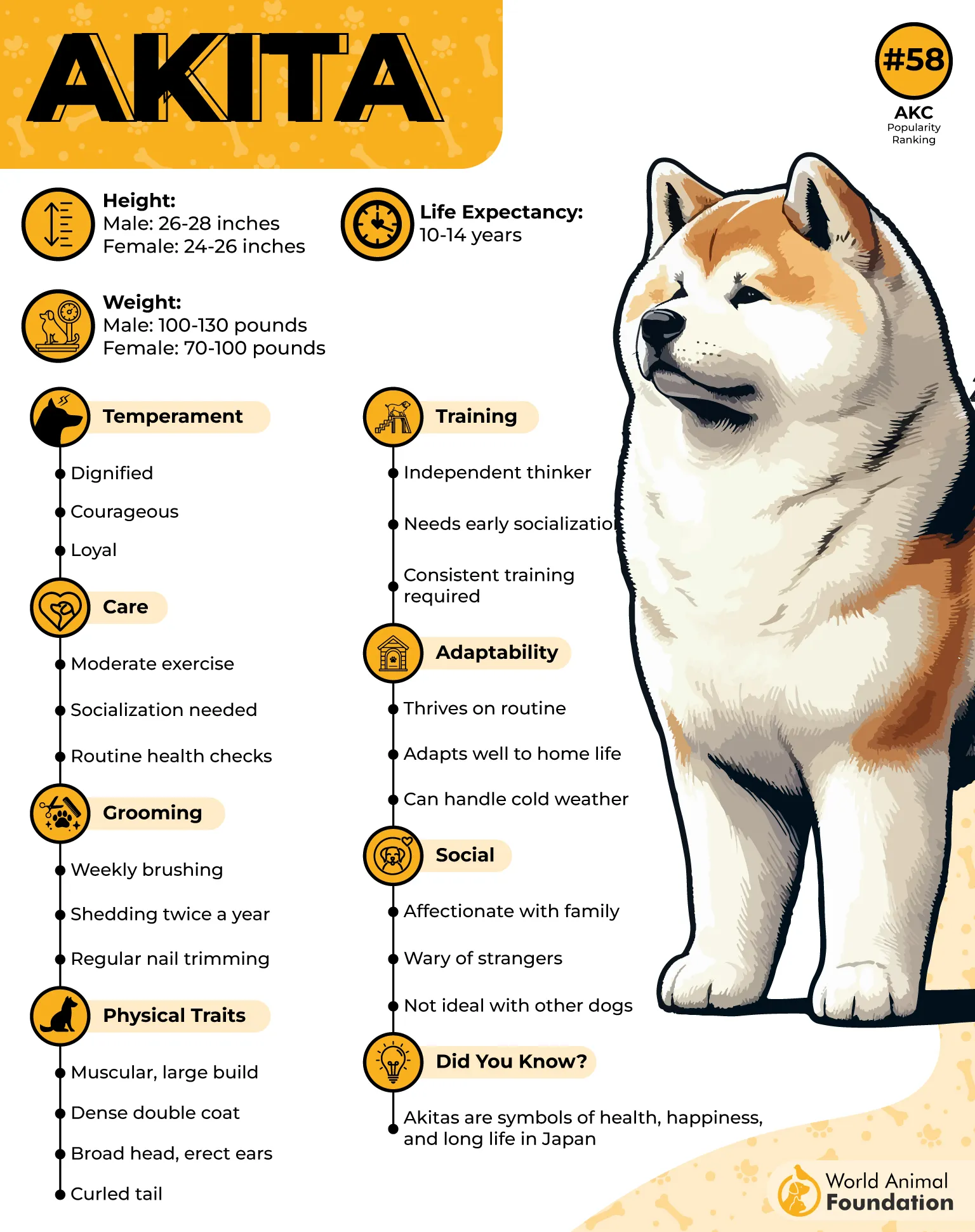
Think of them as the ultimate “quiet but deadly” protectors, quietly watching from the sidelines until something truly worth alerting you about happens. This quieter breed is fiercely loyal—once you’re in their inner circle, you’re basically family royalty. But with everyone else? They’re the strong, silent type.
Walking an Akita is like having a calm, dignified fortress by your side. You won’t hear a lot of barking unless a suspicious squirrel dares cross your path (and even then, it’s probably just a firm warning, not a bark-a-thon).
Basically, Akitas are the “bark when it counts” kind of dogs—perfect for folks who want a protective companion who respects peace and quiet. Plus, their fluffy coats and stoic expressions make them look like ancient samurai ready to defend your honor… or at least your mailman.
6. Basenji
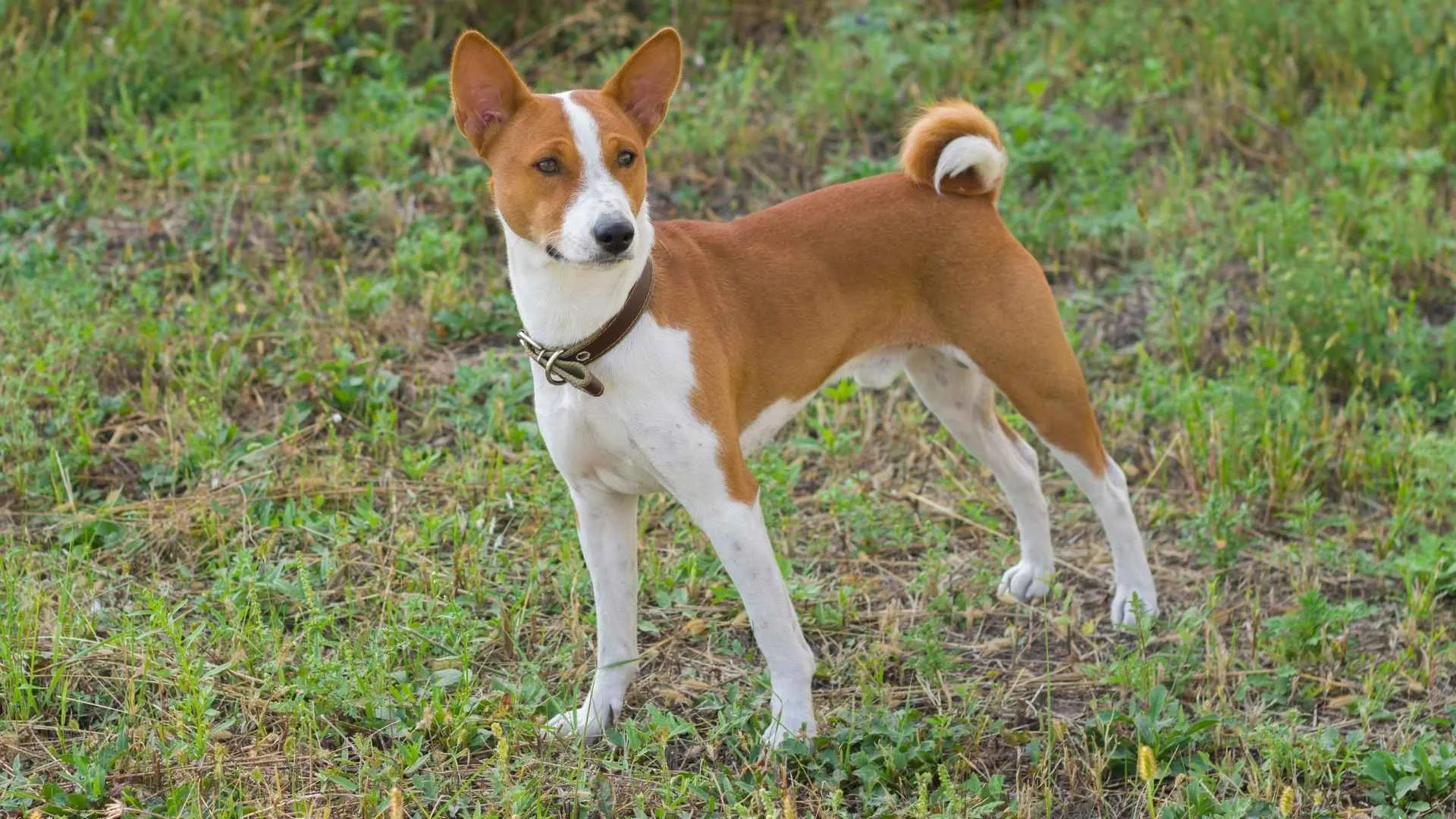
Ah, the Basenji—the dog that literally doesn’t bark. According to Britannica, these barkless dogs are quiet indoors and kind of have a “not today, human” attitude when it comes to cuddling. They’re the independent, mysterious type, kind of like the cool kid in school who prefers to keep their distance.
But don’t let the quiet fool you. Basenjis are alert and make great watchdogs, always aware of what’s going on around them. Instead of barking, they communicate with unique sounds that some describe as yodels or “baroos”—which, frankly, sounds way cooler than your average bark.
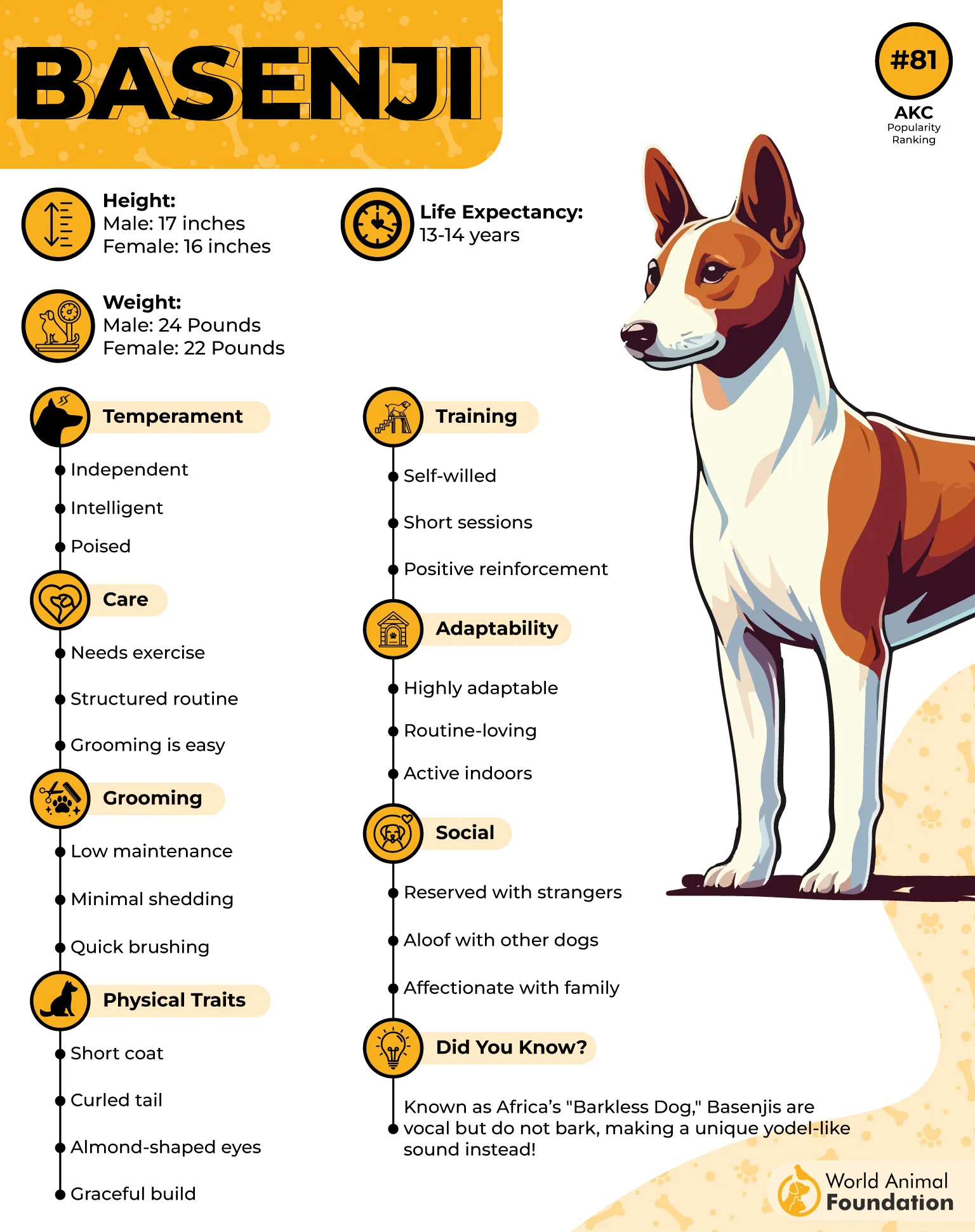
If they don’t get enough exercise, they can turn into little mischief machines, so keeping them busy is key. Training them? That’s a different story. With their independent streak, Basenjis are basically the doggy equivalent of a stubborn teenager—they’ll listen… sometimes.
Walking a Basenji is like having a silent ninja sidekick who’s always observing, but won’t complain loudly if a dog walks by. Quiet, clever, and just a little bit wild—these dogs are perfect for owners who want a dog with personality and peace on the walk.
7. Whippet
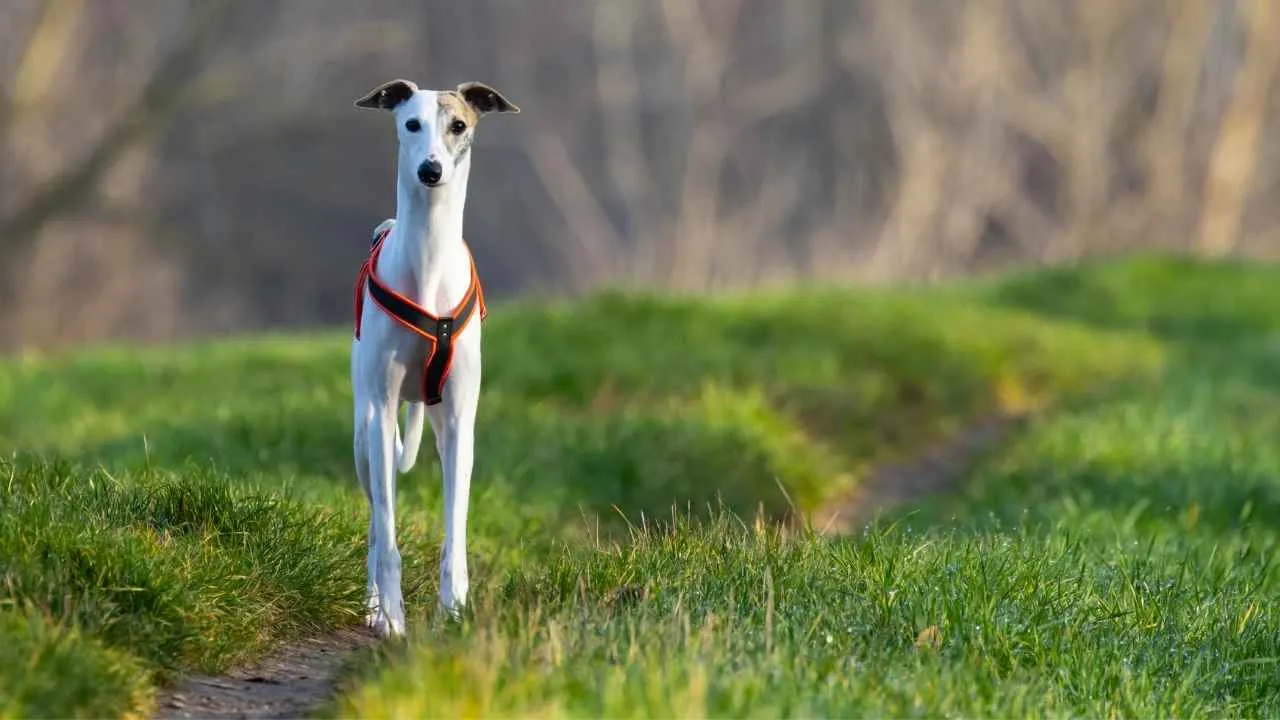
Whippets are basically the sleek, stylish cousins of greyhounds—think of them as the elegant track stars of the dog world who’d rather keep the noise level low. If barking were a race, Whippets would be the ones who quietly cross the finish line and casually sip a smoothie instead of raising a ruckus.
Whippets stand 18 to 22 inches tall at the shoulder and have a slender, elegant build with a deep chest, long neck, narrow waist, and graceful legs. They closely resemble smaller Greyhounds, having been developed by crossing the larger sprinters with smaller terriers.
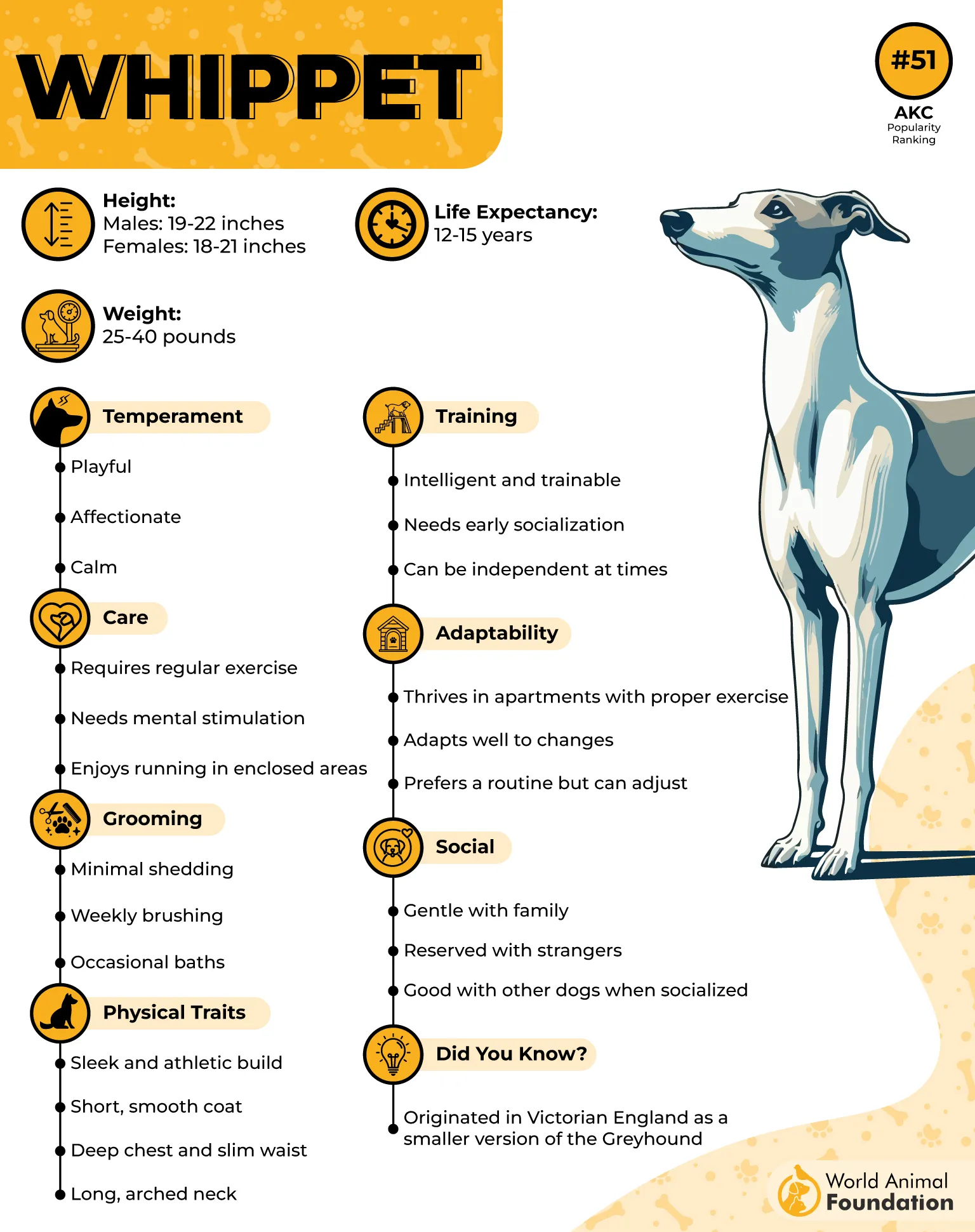
Known for their calm demeanor and gentle nature, Whippets usually keep their barking to a minimum—unless they spot something really worth announcing (like a squirrel doing a tightrope act or an ice cream truck rolling by).
These small breeds have a soft spot for peace and quiet, making them perfect companions for those who enjoy serene walks without the canine choir. And let’s not forget, when these guys aren’t quietly observing the world around them, they can rocket up to speeds of 35 miles per hour, zooming like little furry bullets of grace and speed.
So, if you want a dog who’s fast, friendly, and a little on the shy side when it comes to barking, Whippets might just be your dream walking buddy.
8. Boston Terrier
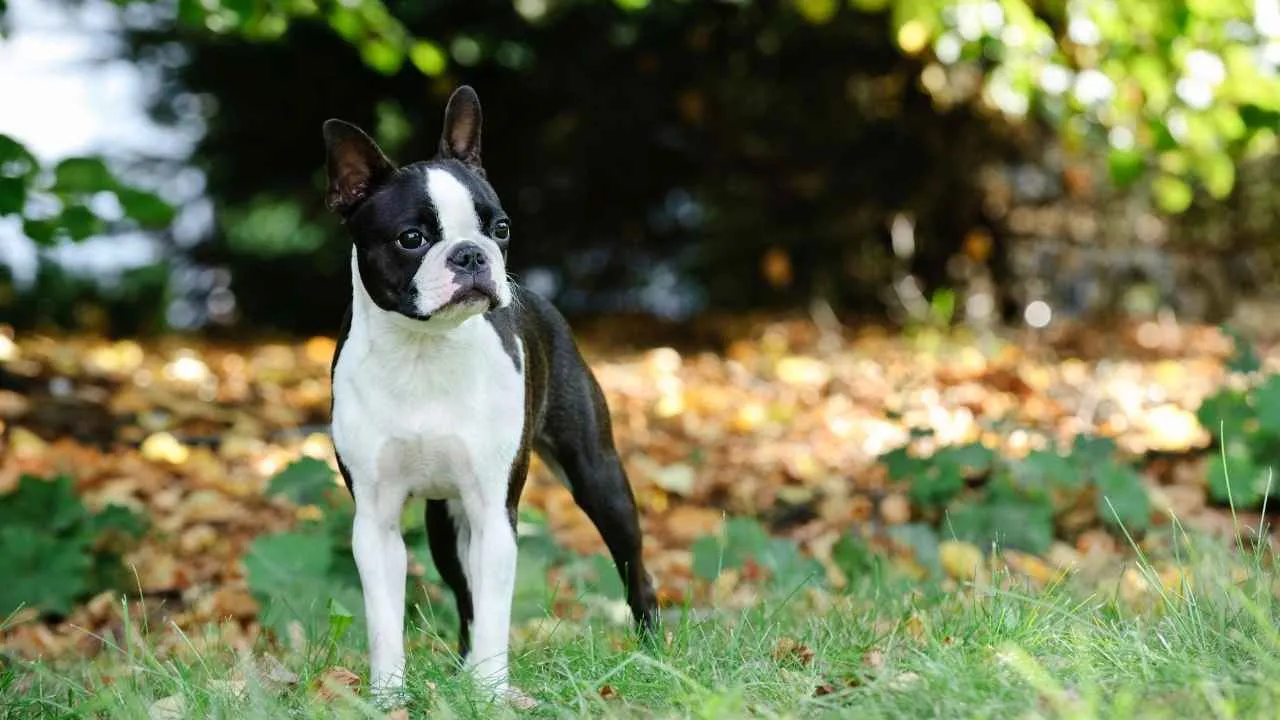
Meet the Boston Terrier, AKA the “American Gentleman” of the dog world. With their tuxedo-like coat and big, expressive eyes, these little guys are dressed to impress—yet they’re surprisingly low-key when it comes to barking at other dogs on walks.
Boston Terrier was a sturdy, muscular, yet relatively small dog, weighing about 30 pounds. They had a square-shaped head and a dark brindle coat accented by a white stripe running down their face.
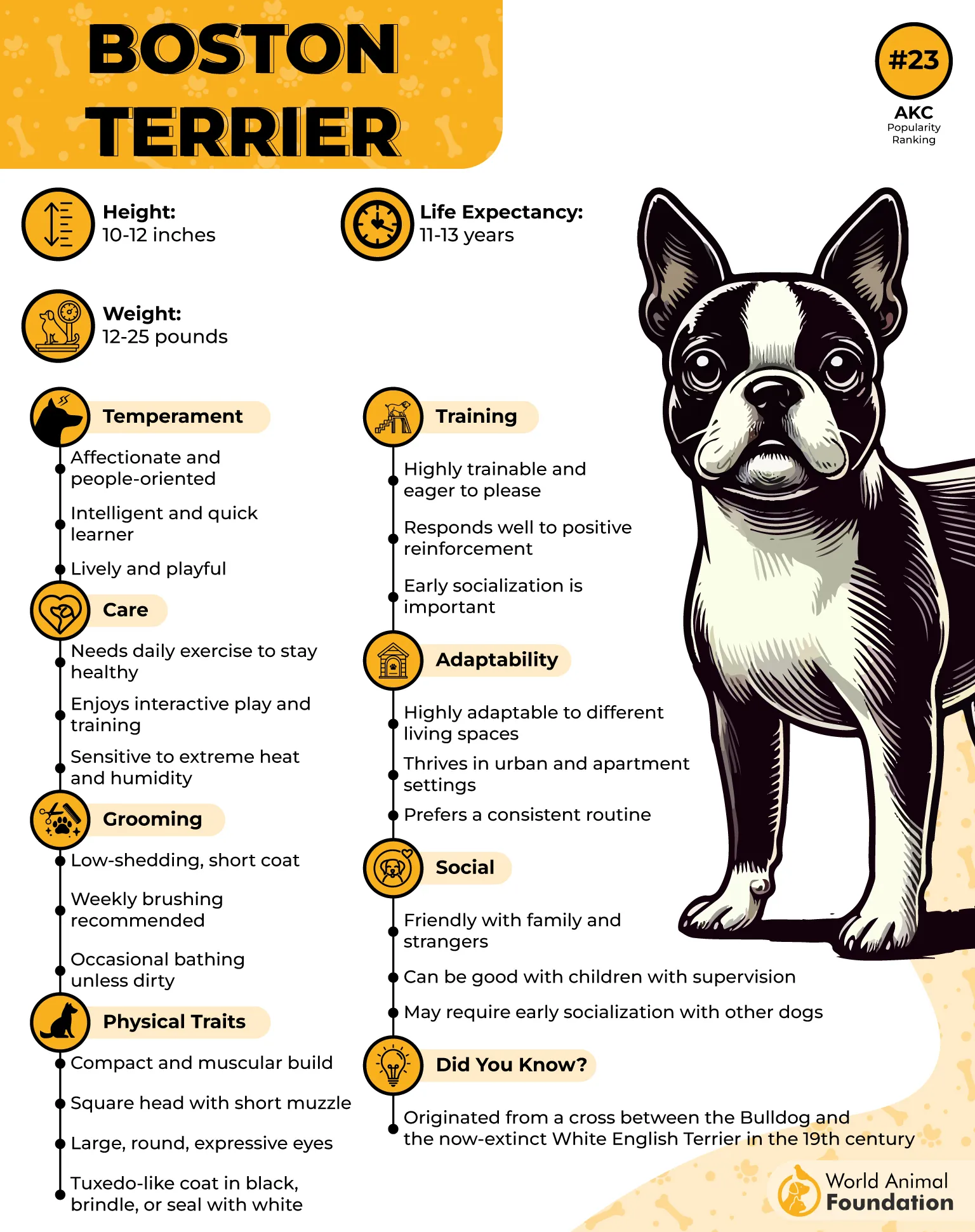
Instead of barking up a storm, Boston Terriers often prefer to communicate with adorable snorts, little grunts, and those classic head tilts that melt hearts faster than a puppy eyes meme.
They’re friendly, curious, and full of personality, but they don’t usually feel the need to bark every time another dog crosses their path. Think of them as the polite neighbor who waves quietly rather than blasting a foghorn.
So, if you want a walking buddy who’s equal parts charming and chill, Boston Terriers are your go-to pals. Just watch out—they might steal your sandwich with those puppy-dog eyes before you even notice!
9. Golden Retriever
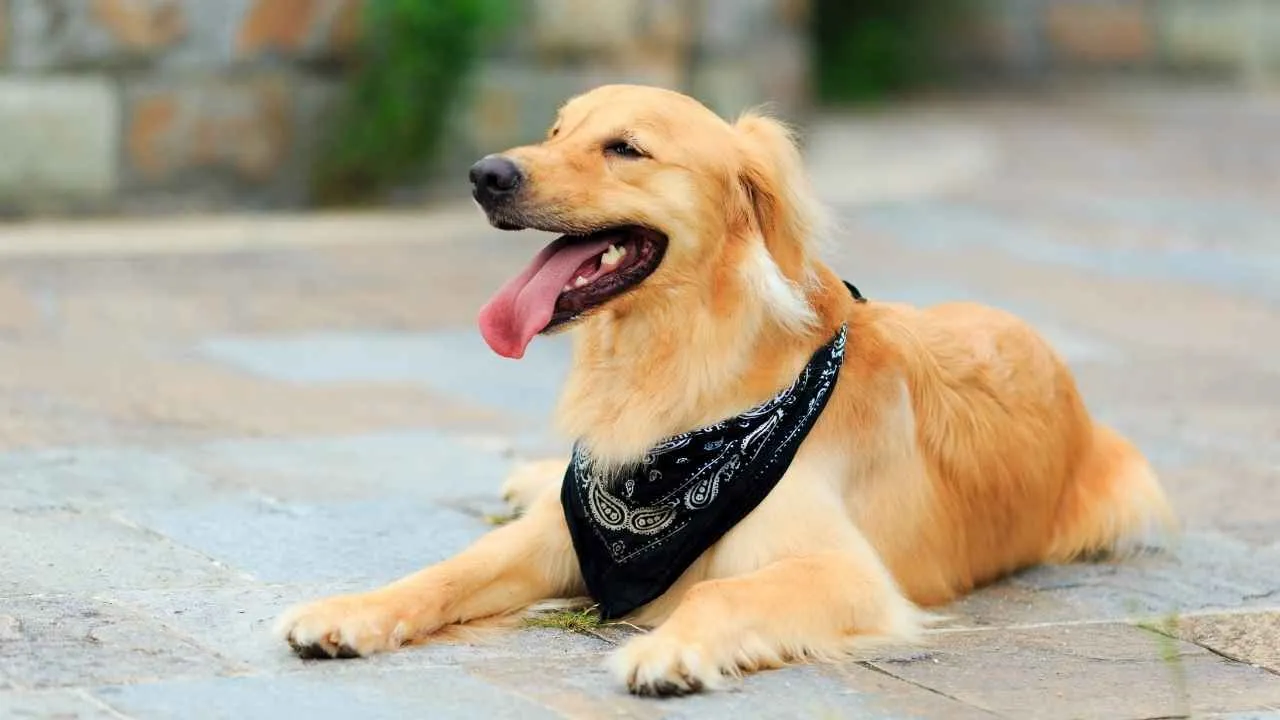
Golden Retrievers are basically the “everyone’s best friend” of dogs, and that friendly nature extends to their walking habits, too.
These very popular, lovable pups are known for being calm and gentle, and they don’t usually get riled up barking at every passing pooch. Instead, they’d much rather wag a happy tail, flash a goofy grin, and maybe make a new buddy or two along the way.

Of course, if there’s a real reason to bark—like alerting you to a stranger or defending their family—Golden Retrievers won’t hesitate.
But generally, they’re the masters of keeping the peace on the sidewalk. Walking a Golden is like strolling with a golden ray of sunshine, radiating warmth and good vibes without the noise pollution.
In short: if you want a dog who’s easygoing, friendly, and prefers a calm walk over a barking battle, Goldens have you covered. Plus, they’re the canine equivalent of a big, warm hug on legs.
Conclusion
Dog breeds that rarely bark at other dogs on walks are often quieter breeds like the Cavalier King Charles Spaniel, the Shih Tzu, and the Japanese Chin. These small dogs, along with gentle giants like the Bernese Mountain Dog, Scottish Deerhound, and Rhodesian Ridgeback, tend to have a laid-back personality and low tendency to bark excessively.
Sight hounds like Whippets and Basenjis may have unique sounds, such as yodeling, but generally aren’t excessive barkers. Terrier breeds and hunting dogs like Shiba Inu and Shar Pei can be more vocal due to their strong-willed, independent nature and higher exercise needs.
For apartment dwellers seeking peace, choosing quieter breeds with minimal grooming and consistent training helps create a peaceful home with appropriate mental stimulation and exercise. Overall, these dogs are great family dogs who maintain calm behavior and rarely view other animals as a potential threat during walks.


